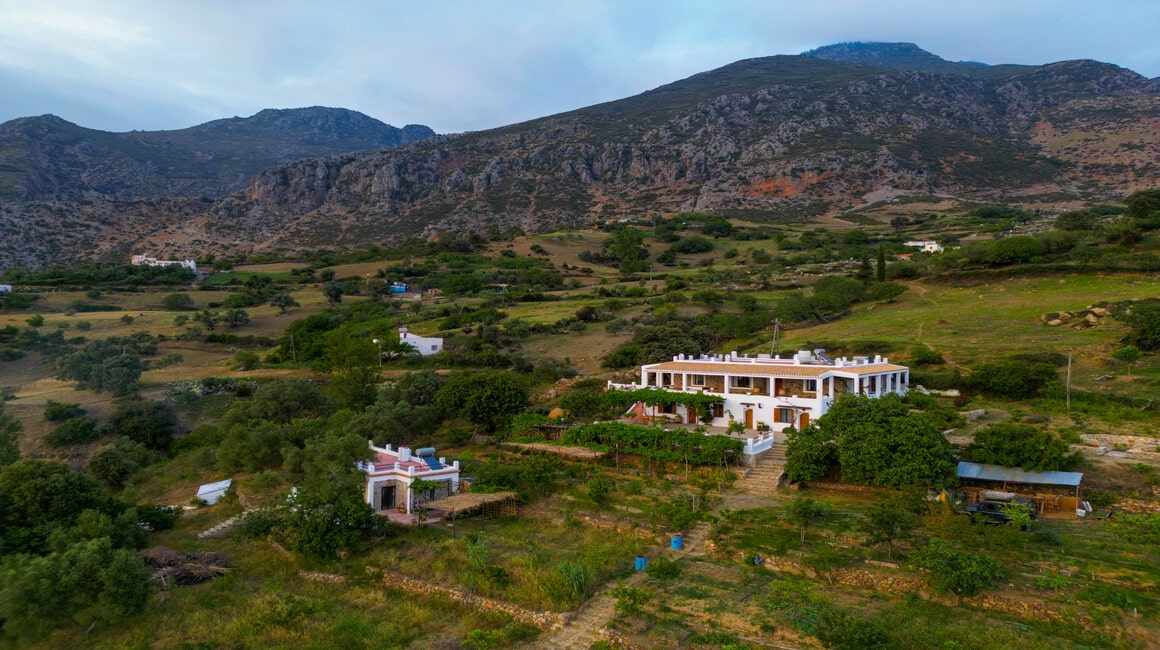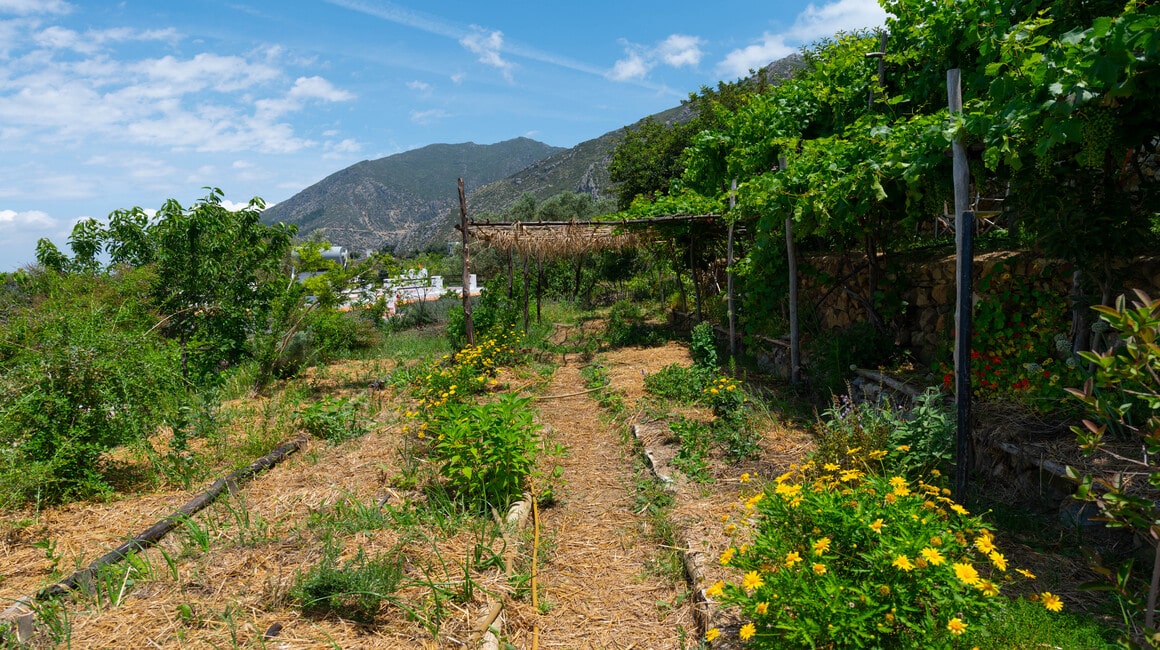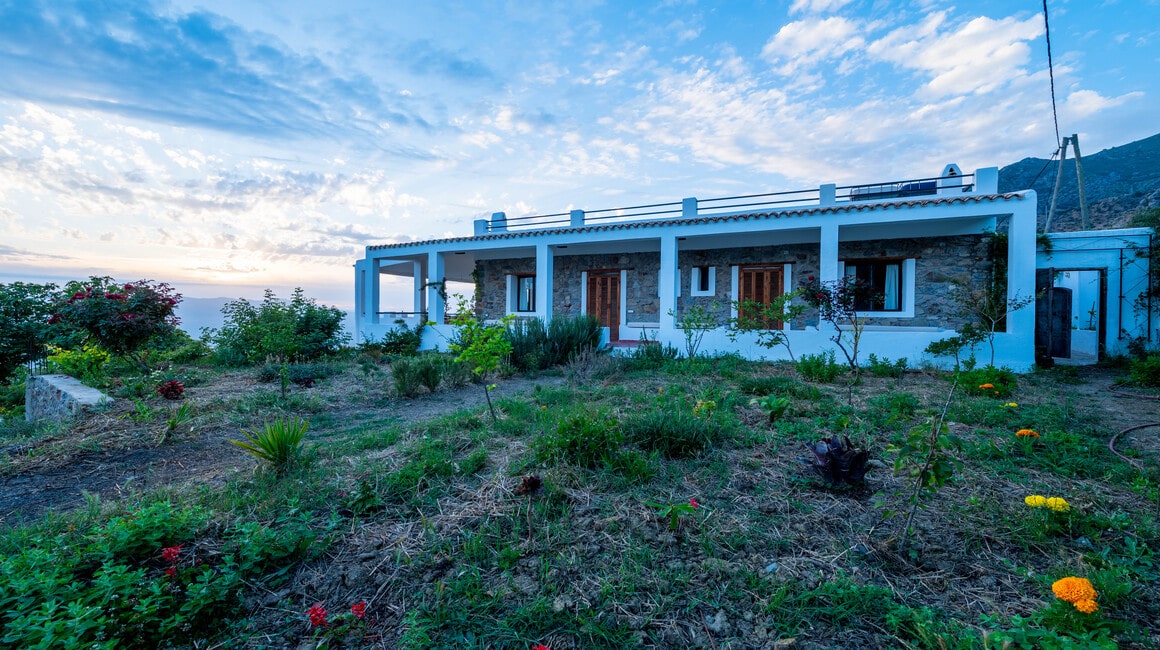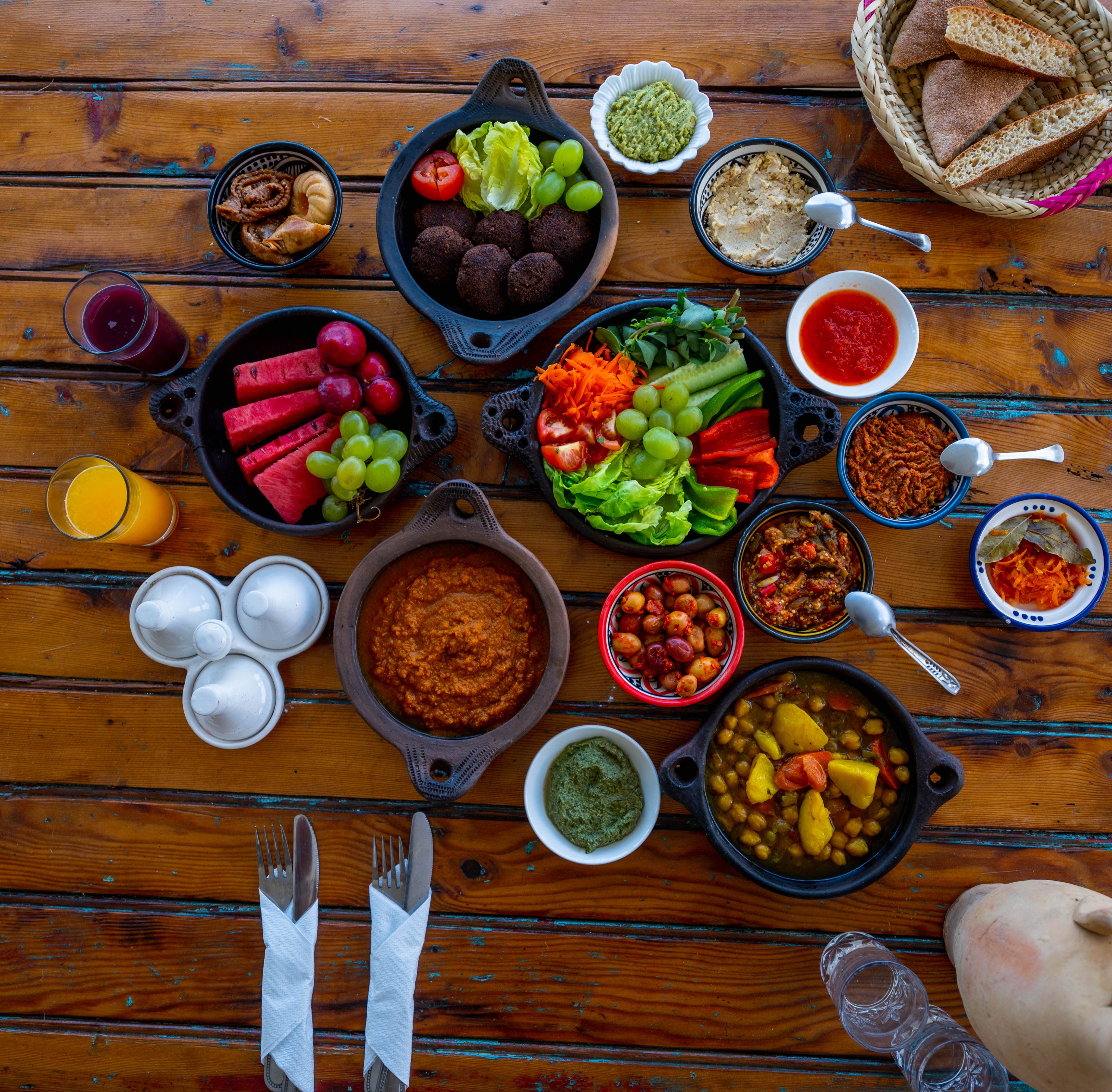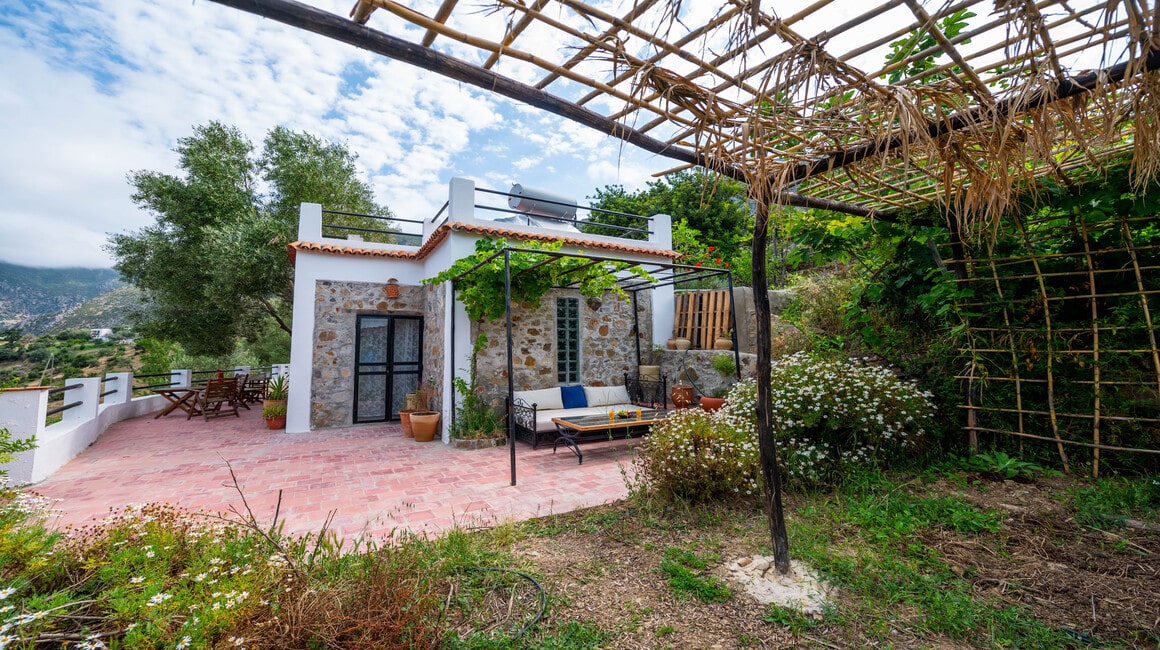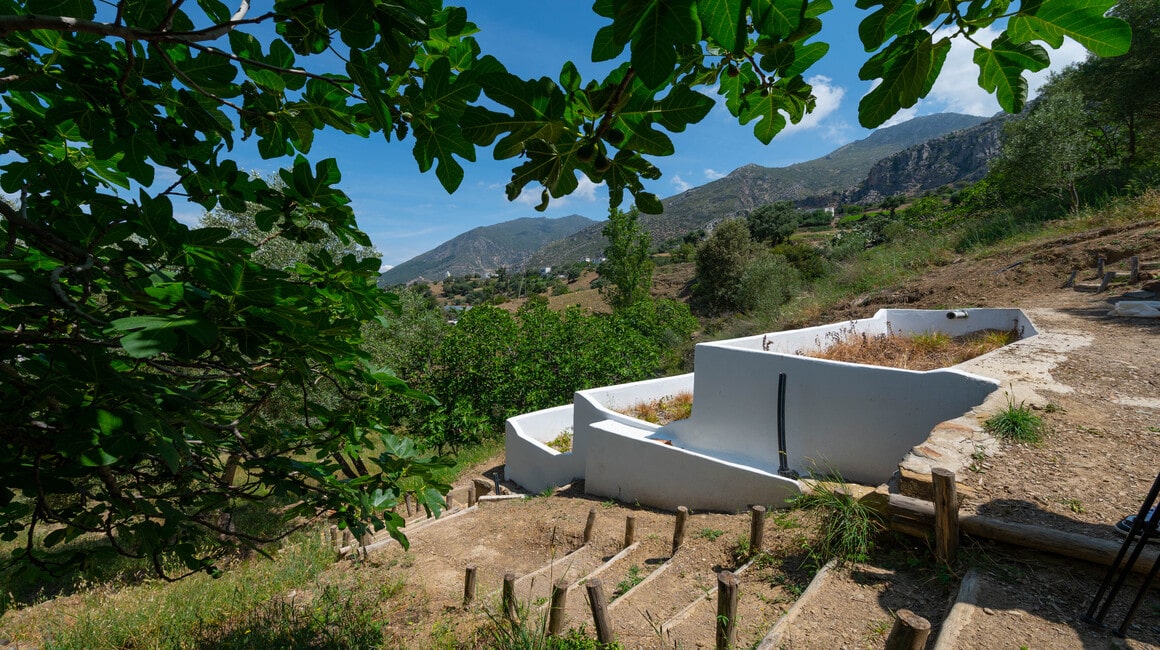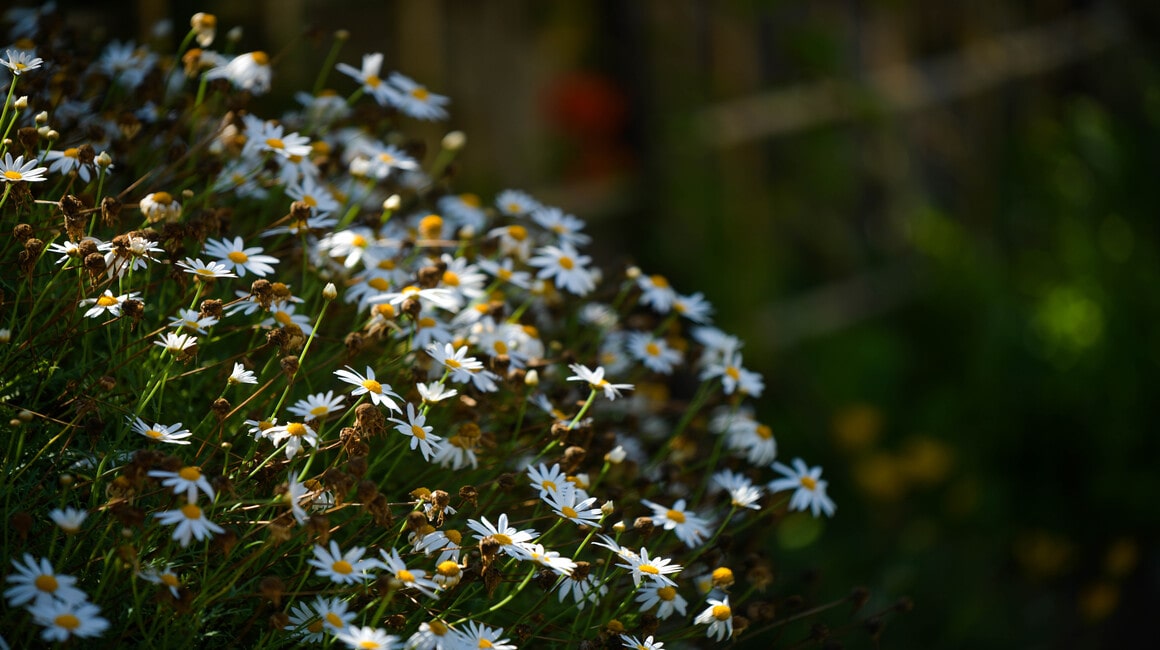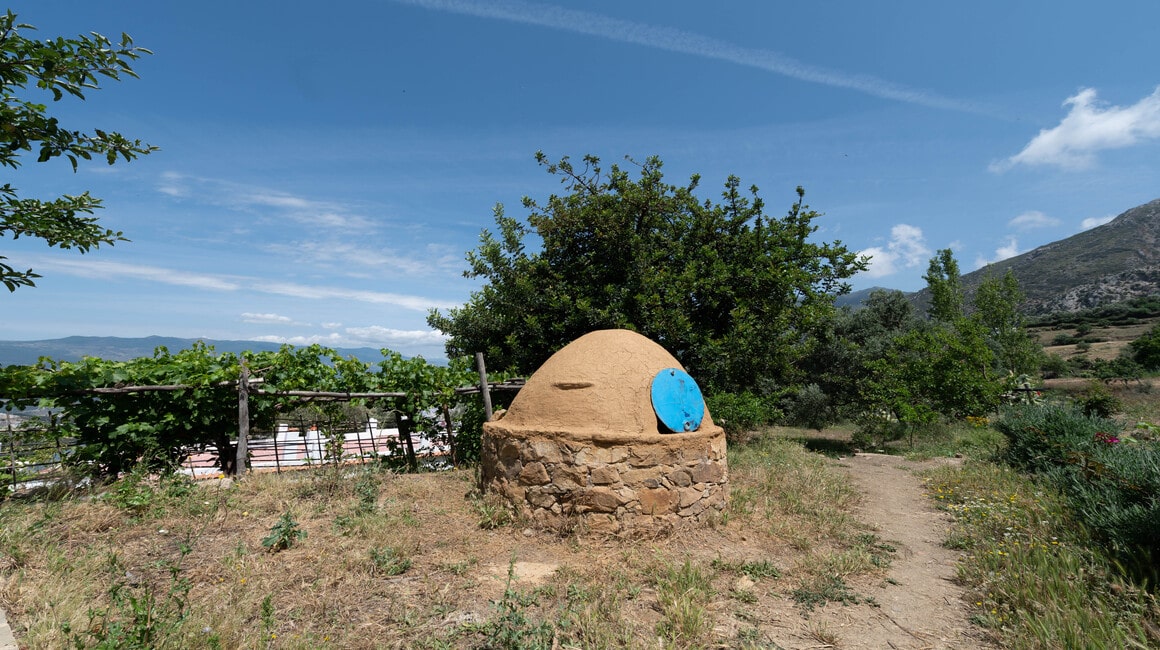On the farm
Our working culture at Farm Finn is based on the Islamic custom of holding the land in deep respect, “Walk on the Earth in humility” (25:63), which is interpreted as meaning that believers are to protect natures’ many bounties.
Whilst there is currently no Organic Certification in Morocco, we have not used any chemicals on our land for more than 10 years and hold the well-being of both animals and the land in the highest regard. This helps us produce an extraordinarily high quality of fruit, vegetables, nuts, olive oil and dairy produce (eggs and goat’s milk). As we fill our gardens with drought resistant pollinator plants and flowers, we also hope to soon produce our own honey.
In every decision, we attempt to strike a balance and take into account the development of the entire property and our association with the land and our community, rather than concentrating only on profit. We consider the land to be in continuous transformation and treat the farm as a living organism. Just under half of the 1.5 hectares of Farm Finn property is dedicated to meadow and land just for natural rewilding.
Use of mulches, home-made compost and amendments. As part of our efforts to rebuild and protect our soil, we cover our gardens in organic mulch and home-made compost. Along with the use of home-made amendments, this helps boost the structure and mycelium content and promote water retention within the soil. It also improves the taste and nutritional value of the food you will be eating.
Prioritising and grouping perennial and drought resistant plant varieties (guilds). Drought is a very real risk in Morocco with rainfall over the past five years falling to 30% of the annual norms. Acknowledging that this situation is only likely to deteriorate, we make every effort to select plant varieties that are able to manage the dual climate change related shocks of winter inundations (floods) and summer droughts. Given trees take several years to nurture, we are very aware that we need to design our gardens today, for a hotter, drier tomorrow.
Evening watering with a drip feed watering system. To ensure that water is targeted at plant roots and does not evaporate in the heat of the day, we have put in place a drip feed watering system that we generally only use in evenings, sending water where it’s most needed.
Ground cover is also promoted using soil covering plants such as pumpkins, marrows and melons, but also by constructing structures upon which vining plants can grow. These not only provide delicious food for us (have you tasted our grapes, guava, and kiwi?) but also provides shade for the beds below, with autumnal leaves adding further mulch, compost, and organic matter to the soil.


